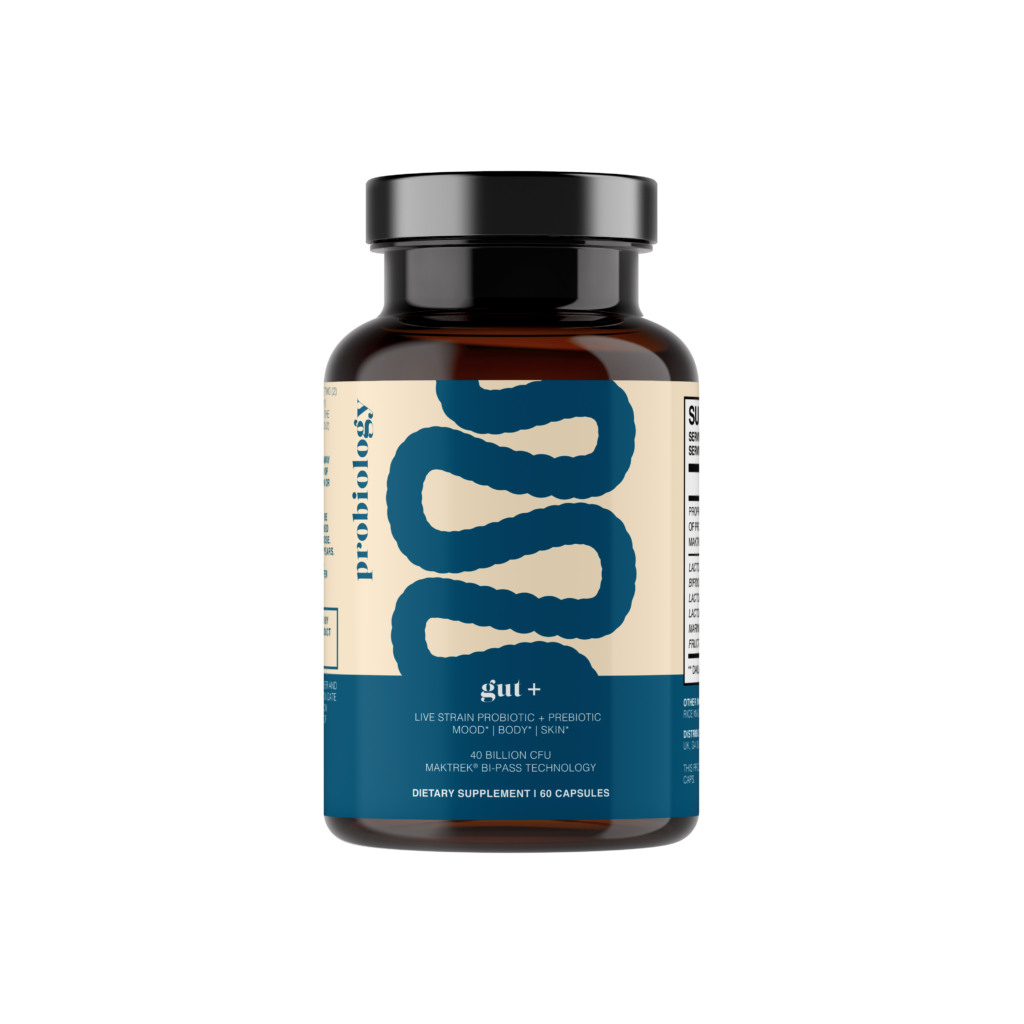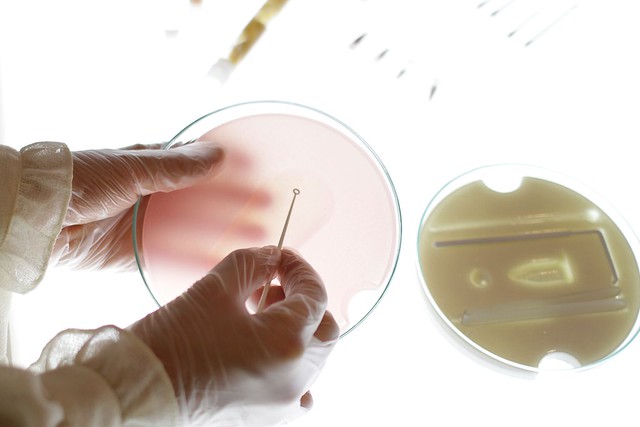Table of Contents
- What are Probiotics for Women?
- Can Probiotics help with Women’s Weight Loss?
- What are some benefits of Probiotics for Women over 50?
- Can pregnant Women take Probiotics?
- What are the benefits of Probiotics for Women with BV?
- What are the side effects of Probiotics for Women?
- What are the benefits of Probiotics for Women with IBS?
- Want to know more?
- Sources
What are Probiotics for Women?
Probiotics are live bacteria or yeast that are found naturally in the body. They are prominently found in the GI tract and other places such as the mouth, vagina, urinary tract, and lungs.
Probiotics are good bacteria that offer diverse health benefits to the consumer. Some bacteria in probiotics such as Lactobacillus or Saccharomyces boulardii are more beneficial to women because they help maintain vaginal flora and prevent urinary tract infections.
The following are some benefits of probiotics for women:
- Helps maintain vaginal health: Probiotics maintain and restore normal vaginal flora, and prevent conditions such as bacterial vaginosis.
- Improves gut health: Probiotics help maintain a higher population of beneficial bacteria in the gut and prevent gastrointestinal conditions.
- Protects against UTI: Probiotics containing lactobacilli can prevent UTIs (Urinary Tract Infections). The urovaginal flora in premenopausal is mainly populated with uropathogens, which in combination with lactobacilli can prevent UTIs.
- Improves skin: Maintaining a healthy gut flora and having good digestive health aided with probiotics helps improve skin health and protects it from various conditions.
- Prevents yeast infections: Research shows that lactobacilli prevents recurrent yeast infections and is beneficial to avoid other vaginal infections.
Can Probiotics help with Women’s Weight Loss?
Probiotics can be used for women’s weight loss because they can improve gut microbiota leading to changes in energy metabolism and body composition.
A clinical trial was performed on 135 participants including women, during the trial the abdominally obese subjects consumed probiotic-containing bifidobacterium or placebo for 3 months. After 3 months, the researchers found a significant decrease in body mass index compared to the baseline, a decrease in waist circumference, and visceral fat in the treatment group. The researchers also found an increase in Akkermansia spp. in the live form which has an inverse relationship with weight.
Another study performed on fatty rats showed that, a probiotic strain known as bifidobacterium animalis subs. lactis has anti-obesity properties and can be efficient in weight management in humans.
In the video below, Naturopathic Physician, Dr. Melissa Gallagher highlights the assortment of benefits of probiotics for women:
This is our recommended Probiotic Supplement for Women:

Gut+ from ProBiology (Probiotics + Prebiotics Formula)
What are some benefits of Probiotics for Women over 50?
Age-related conditions in women such as menopause affect gut microbiota and can cause various disorders, hence using probiotics is more beneficial for women over 50. Probiotics generally offer many health benefits to consumers of all ages, however, studies show that the aging process significantly alters the gut microbiome, leading to an increase in harmful bacteria.
Here are some benefits of probiotics for women over 50:
- Reduces GI symptoms: Given aging affects GI functions consumption of probiotics can alleviate GI disorders. Studies show consumption of milk fermented with bifidobacterium lactis decreases gastrointestinal discomfort and other GI symptoms.
- Prevents weight gain: Age-related conditions in women such as menopause can lead to weight gain. Animal studies show that the consumption of probiotics results in a decrease in fat mass and glucose intolerance.
- Improves immune response: Studies in the elderly show that probiotics can increase anti-inflammatory markers, reduce proinflammatory agents, and increase certain immune cells to protect against common inflammatory conditions.
- Microbiota composition: Aging, hormones, and age-related changes can affect gut microbiota in women. Several studies show that the consumption of probiotics in adults improves gut microbiota and leads to improved GI and digestive functions.
- Decreases incidence of infections: A clinical trial shows that consuming a higher dosage of probiotics led to decreased occurrence of the common cold.
- Improves general well-being and cognitive function: Studies show that consumption of probiotics resulted in decreased stress levels and improved mood.
- Decreases lipid, total cholesterol, and LDL-cholesterol in the elderly.
Can pregnant Women take Probiotics?
Pregnant women can take probiotics because they do not interfere with pregnancy, their long-term safety profile is well established and most probiotics are declared as GRAS “Generally Regarded As Safe” by USFDA.
A review of scientific literature studying the use of probiotics on pregnant women found that the consumption of probiotics did not increase or decrease the risk of premature birth or gestational diabetes. The review concluded that the use of probiotics during pregnancy does not affect the outcome.
Another study concluded that the use of probiotics while pregnant or breastfeeding is safe because their systemic absorption is rare. In addition, the study mentions that the probiotics are unlikely to be transferred to the fetus via breast milk.
What are the benefits of Probiotics for Women with BV?
The following are some benefits of probiotics for women with BV (Bacterial Vaginosis):
- Increases lactobacilli: Studies show that the consumption of probiotics containing lactobacillus acidophilus increases the number of lactobacilli in vaginal flora, which protects against BV.
- Restores vaginal flora: Studies show that disturbed vaginal flora, primarily a decrease in lactobacilli contributes to the development of BV. Consuming probiotics can help restore normal vaginal flora.
- Prevents recurrence: Studies show the consumption of probiotics in patients suffering from BV led to a significant decrease in recurrence of the condition.
- Consuming probiotics can help the long-term prevention of BV.
- Using probiotics helps maintain vaginal health, and improves cure rates and chances of recurrence of different vaginal conditions.
What are the side effects of Probiotics for Women?
Probiotics are generally safe for all, however, they may cause some side effects such as:
- Upset stomach
- Cramps
- Abdominal pain
- Bloating
- Gast/ flatulence
- Diarrhea
- Cough
- Headache
- Some probiotics may increase or decrease levels of histamine.
- Skin allergies such as rash, hives, and redness
- Women with compromised immune systems such as those undergoing treatment for AIDS or organ transplant, and people undergoing chemotherapy should consult their physician.
- Women with artificial heart valves or surgery should take probiotics with caution because it may increase the chances of infection.
The simple side effects usually go away after taking probiotics for a few days, or once the body gets accustomed to probiotics.
What are the benefits of Probiotics for Women with IBS?
The following are some benefits of probiotics for women with IBS (Irritable bowel syndrome):
- Decreases symptoms of IBS: A study performed on 274 IBS patients shows that consumption of yogurt containing probiotics for 6 weeks decreased bloating, increased stool frequency, and decreased intestinal transit time.
- Effects on intestinal mucosa: several studies show that the consumption of probiotics improves the barrier function of epithelium, decreases pH, and increases the production of bactericidal proteins.
- Alters gut flora: Consumption of probiotics changes the composition of gut flora by increasing the number of beneficial bacteria, which helps to reduce other gastrointestinal symptoms and improves digestive health.
- Improves immune function: Studies show probiotics have immunomodulatory action, they can decrease inflammation and help fight infection.
- Study participants with IBS report improvement in health-related quality of life after consuming probiotics.
Want to know more?
Click the links below to access the individual topic pages:
Sources
This article makes use of information from the U.S. National Library of Medicine under the terms of the Creative Commons Attribution 4.0 International License.
- Reid G, Beuerman D, Heinemann C, Bruce AW. Probiotic Lactobacillus dose required to restore and maintain a normal vaginal flora. FEMS Immunol Med Microbiol. 2001 Dec;32(1):37-41. doi: 10.1111/j.1574-695X.2001.tb00531.x. PMID: 11750220.
- Hemarajata P, Versalovic J. Effects of probiotics on gut microbiota: mechanisms of intestinal immunomodulation and neuromodulation. Therap Adv Gastroenterol. 2013 Jan;6(1):39-51. doi: 10.1177/1756283X12459294. PMID: 23320049; PMCID: PMC3539293.
- Falagas ME, Betsi GI, Tokas T, Athanasiou S. Probiotics for prevention of recurrent urinary tract infections in women: a review of the evidence from microbiological and clinical studies. Drugs. 2006;66(9):1253-61. doi: 10.2165/00003495-200666090-00007. PMID: 16827601.
- Ellis SR, Nguyen M, Vaughn AR, Notay M, Burney WA, Sandhu S, Sivamani RK. The Skin and Gut Microbiome and Its Role in Common Dermatologic Conditions. Microorganisms. 2019 Nov 11;7(11):550. doi: 10.3390/microorganisms7110550. PMID: 31717915; PMCID: PMC6920876.
- Superti F, De Seta F. Warding Off Recurrent Yeast and Bacterial Vaginal Infections: Lactoferrin and Lactobacilli. Microorganisms. 2020 Jan 17;8(1):130. doi: 10.3390/microorganisms8010130. PMID: 31963487; PMCID: PMC7023241.
- Pedret A, Valls RM, Calderón-Pérez L, Llauradó E, Companys J, Pla-Pagà L, Moragas A, Martín-Luján F, Ortega Y, Giralt M, Caimari A, Chenoll E, Genovés S, Martorell P, Codoñer FM, Ramón D, Arola L, Solà R. Effects of daily consumption of the probiotic Bifidobacterium animalis subsp. lactis CECT 8145 on anthropometric adiposity biomarkers in abdominally obese subjects: a randomized controlled trial. Int J Obes (Lond). 2019 Sep;43(9):1863-1868. doi: 10.1038/s41366-018-0220-0. Epub 2018 Sep 27. PMID: 30262813; PMCID: PMC6760601.
- Carreras NL, Martorell P, Chenoll E, Genovés S, Ramón D, Aleixandre A. Anti-obesity properties of the strain Bifidobacterium animalis subsp. lactis CECT 8145 in Zücker fatty rats. Benef Microbes. 2018 Jun 15;9(4):629-641. doi: 10.3920/BM2017.0141. Epub 2018 Apr 26. PMID: 29695181.
- Waitzberg DL, Quilici FA, Michzputen S, Friche Passos Mdo C. THE EFFECT OF PROBIOTIC FERMENTED MILK THAT INCLUDES BIFIDOBACTERIUM LACTIS CNCM I-2494 ON THE REDUCTION OF GASTROINTESTINAL DISCOMFORT AND SYMPTOMS IN ADULTS: A NARRATIVE REVIEW. Nutr Hosp. 2015 Aug 1;32(2):501-9. doi: 10.3305/nh.2015.32.2.9232. PMID: 26268077.
- Hutchinson AN, Bergh C, Kruger K, Sűsserová M, Allen J, Améen S, Tingö L. The Effect of Probiotics on Health Outcomes in the Elderly: A Systematic Review of Randomized, Placebo-Controlled Studies. Microorganisms. 2021 Jun 21;9(6):1344. doi: 10.3390/microorganisms9061344. PMID: 34205818; PMCID: PMC8234958.
- Guillemard E, Tondu F, Lacoin F, Schrezenmeir J. Consumption of a fermented dairy product containing the probiotic Lactobacillus casei DN-114001 reduces the duration of respiratory infections in the elderly in a randomised controlled trial. Br J Nutr. 2010 Jan;103(1):58-68. doi: 10.1017/S0007114509991395. Epub 2009 Sep 14. PMID: 19747410.
- Jarde A, Lewis-Mikhael AM, Moayyedi P, Stearns JC, Collins SM, Beyene J, McDonald SD. Pregnancy outcomes in women taking probiotics or prebiotics: a systematic review and meta-analysis. BMC Pregnancy Childbirth. 2018 Jan 8;18(1):14. doi: 10.1186/s12884-017-1629-5. PMID: 29310610; PMCID: PMC5759212.
- Elias J, Bozzo P, Einarson A. Are probiotics safe for use during pregnancy and lactation? Can Fam Physician. 2011 Mar;57(3):299-301. PMID: 21402964; PMCID: PMC3056676.
- Guyonnet D, Chassany O, Ducrotte P, Picard C, Mouret M, Mercier CH, Matuchansky C. Effect of a fermented milk containing Bifidobacterium animalis DN-173 010 on the health-related quality of life and symptoms in irritable bowel syndrome in adults in primary care: a multicentre, randomized, double-blind, controlled trial. Aliment Pharmacol Ther. 2007 Aug 1;26(3):475-86. doi: 10.1111/j.1365-2036.2007.03362.x. PMID: 17635382.
- Allonsius CN, van den Broek MFL, De Boeck I, Kiekens S, Oerlemans EFM, Kiekens F, Foubert K, Vandenheuvel D, Cos P, Delputte P, Lebeer S. Interplay between Lactobacillus rhamnosus GG and Candida and the involvement of exopolysaccharides. Microb Biotechnol. 2017 Nov;10(6):1753-1763. doi: 10.1111/1751-7915.12799. Epub 2017 Aug 3. PMID: 28772020; PMCID: PMC5658588.


